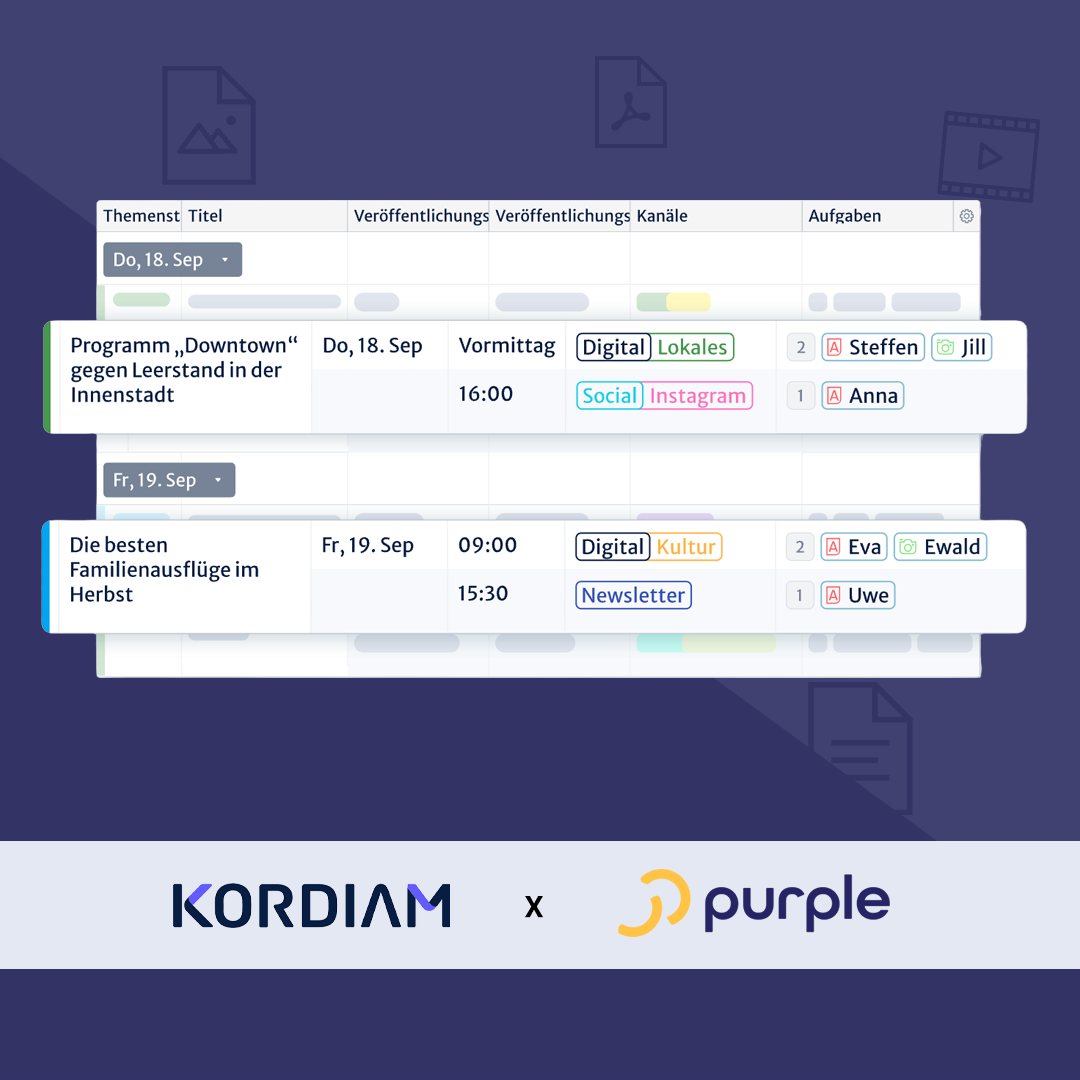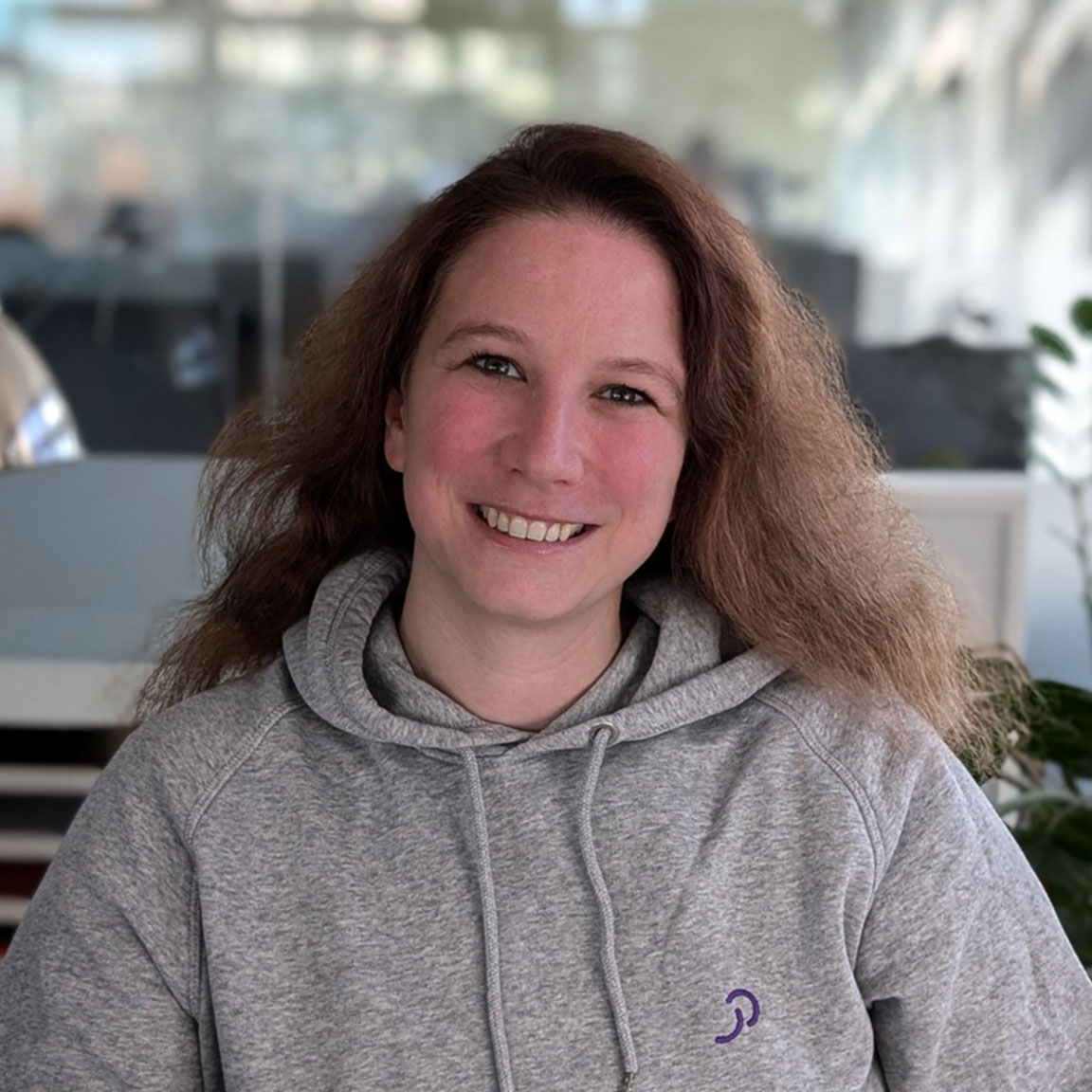Successful customer retention : Why publishers are increasingly turning to podcasts
Podcasts are no longer just a trend in journalism, but have become established. This year, the audio format is more popular than ever before. Many publishers are already successful with podcasts and their experiences illustrate the potential of this format.
The popularity of podcasts has risen to a record level this year, according to survey results from the Online Audio Monitor 2024. Publishers use podcasts specifically to strengthen customer loyalty or tap into new target groups.
Podcasts have become an integral part of the media repertoire of many news producers. A particularly striking example is the most successful podcast in Germany in August 2024: "ZEIT Verbrechen" from ZEIT Online with 7.99 million downloads. The experiences and strategies of leading podcast producers illustrate the format's enormous potential for effective customer retention in the publishing industry.
Consumption of podcasts has increased by 20 percent in 2024
The results of the Online Audio Monitor 2024 show that the popularity of podcasts in Germany has increased by 20 percent this year. Compared to the other audio formats of music streaming, web radio and audio books, this is the strongest increase in the past year.
While 30% of people in Germany listened to podcasts or radio programs in 2023, this figure has already risen to 35% this year. This corresponds to almost 25 million people aged 14 and over in Germany who are reached by audio content. This figure offers great potential not only for the advertising market, but also for publishers, who can use it to monetize their content.
Podcasts as a point of contact with potential target groups
Podcasts are an interesting format for publishers in many respects. Available free of charge, they are at the beginning of the marketing funnel and provide a first impression of the journalistic offering and the quality of content from publishers. Podcasts are also valuable contact points, as they reach target groups in situations where texts cannot be read and videos cannot be watched - such as when driving or playing sport. Audio formats can also appeal to people who do not consume written content otherwise.
With special interest topics and shows aimed at specific demographics, publishers can expand their audience in a targeted manner. The Aachener Zeitung, for example, has been particularly successful with its soccer podcast "You never talk alleng". A few formats in this segment are already self-supporting thanks to sponsors. After just two years, the newspaper is already recording steadily increasing reach figures, particularly for the podcast formats offered on a regular basis.
Podcasts are also a springboard for publishers to reach younger target groups and bring them closer to the brand. This is also shown by the results of the Online Audio Monitor 2024. 95% of 14 to 29-year-olds in Germany already listen to online audio content, while the figure for 30 to 49-year-olds is 89%.
Through initial contact with podcasts, publishers can reach a broad target group and offer free added value. Subscription offers within the podcasts also offer the opportunity to attract listeners for further journalistic content.

Why podcasts strengthen customer retention
Podcasts are a particularly personal format that builds a close bond between the brand and loyal listeners. So-called parasocial relationships often develop between listeners and hosts due to the repeated interaction that triggers a feeling of connection.
As listeners regularly spend time with the hosts, this also creates a habit. Short, daily news podcasts are often the first media interaction of the day. Longer formats sometimes have an interaction time of an hour or more and thus also create intensive connections.
Due to the constant proximity and regular interaction, podcasts promote customer loyalty in the long term and create loyal, committed listeners. For publishers, this offers the opportunity to influence purchasing decisions with podcasts. The stronger the connection to the content, the lower the inhibition threshold to financially support a podcast and the brand behind it.
Influencing the audience's purchasing decisions with podcasts
Publishers have different ways of influencing their audience's purchasing decisions via podcasts. As loyal listeners often develop a strong bond with the content and hosts, they are more willing to pay for exclusive content. Cheryl Brumley, Head of Audio at the Financial Times, emphasized in a panel discussion at this year's International Journalism Festival that subscription offers advertised in podcasts can be an effective way to convert listeners into paying subscribers.
Another monetization strategy is the creation of exclusive audio formats that are only accessible as part of a subscription. In addition to its freely accessible podcasts, the Süddeutsche Zeitungalready offers a selection of exclusive, paid formats, while the Tagesspiegel developed its first podcast format exclusively for subscribers this year.

In order to use different strategies for monetization, it is important to further expand the brand around a podcast. One option is live events that also contribute to community building. Badische Zeitung hosted three live podcasts with an audience this summer, including a true crime format and two expert talks at a regional festival. The Aachener Zeitung also uses live podcasts to involve listeners and encourage interaction with the audience.
The Guardian also relies successfully on podcasts and sells merchandise products to listeners at live events. Nicole Jackson, Head of Audio at The Guardian, emphasized at this year's International Journalism Festival that successful podcasts can even lead to the publication of books. Podcast episodes can also be integrated into newsletters.
Experiences with AI-assisted podcasts
Artificial intelligence can be used in many ways, not only in written news production, but also for podcasts. In Badische Zeitung's weekday news podcast "200 Sekunden Baden", an AI voice has been providing a news overview for the region in less than four minutes since 2022.
However, editors are also involved in the production of the format. Lisa Böttinger, podcast editor at Badische Zeitung, explains in an interview with BDZV that the editors not only select news items and shorten texts, but also train the AI voice manually and regularly expand the AI dictionary. It is particularly important that the AI voice pronounces place names correctly, as this is very important for listeners in the region.
Lisa Böttinger considers the editorial team's experience with AI to be valuable. The editors use the potential of the technology and at the same time experience a steep learning curve as they work with it on a daily basis.
Aachener Zeitung is also successfully producing AI-assisted podcasts. The editing programs used have AI-based filters and sound optimization. Transcription programs simplify the editors' work. Nevertheless, AI editing can lead to voice distortion - audio manager Peter Engels explains in an interview with BDZV that the tools are becoming increasingly reliable. AI support in podcast production is expected to reduce the amount of work required for audio editing, leaving more time for content creation.
What publishers should consider
The podcast market is saturated, which is why publishers should clearly emphasize the USP of their own brand. By utilizing the knowledge and skills of your teammates, you can produce high-quality content and target specific audiences.
When producing podcasts, it is important to find a balance. Daily formats are expensive and time-consuming. For publishers with limited capacities, weekly formats or evergreen topics that are characterized by depth of content are therefore particularly suitable at the beginning.
With time and a growing audience, the frequency of weekly formats can be increased. Short, regular podcasts are often easier to integrate into the everyday lives and habits of listeners, but should also contain high-quality journalistic content.
Listener acceptance of longer formats is higher with podcasts than with written media or on social media. This makes podcasts a strong medium, as Cheryl Brumley, Head of Audio at the Financial Times, explained at this year's International Journalism Festival. Nicole Jackson, Head of Audio at The Guardian, emphasized the importance of consistency in the length of podcasts in order to create a reliable point of contact for listeners.
Before producing an episode, editors should ask themselves what they want listeners to take away and whether the content can be presented succinctly. It is important to maintain journalistic quality and adjust the length accordingly.
Publishers should also take into account that podcasts are consumed almost exclusively via external platforms such as Spotify or Apple Podcasts - and not via their own websites. At the Guardian, for example, 98 percent of listeners use these platforms; at Badische Zeitung, the figure is around 80 percent. This limits both the opportunities for monetization and the analysis of user data. In addition, brand loyalty is often significantly weaker. A long-term solution is therefore to integrate podcasts with exclusive content for subscribers on your own website or app. Many publishers are already using this model, including Süddeutsche Zeitung and the New York Times, which has even developed an - albeit expensive - audio app for this purpose.
Success through quality and consistency
Podcasts offer a wide range of opportunities for publishers. Their increasing popularity, especially among younger target groups, makes podcasts an important medium for customer retention and monetization for publishers. Publishers can use the resulting connection between listeners and hosts to positively influence purchasing decisions.
With specialized content and new technologies, such as AI-supported productions, publishers can further expand their reach and brand loyalty. Despite the competitive market, the key to success lies in high-quality and consistent formats.
At Purple, we help publishers increase productivity with our AI-based digital publishing platform. Do you have any questions? Get in touch with us today.






%201.svg)











